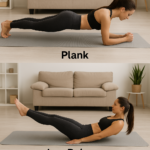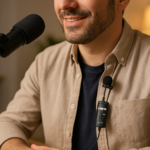How to Get Rid of Sleep While Studying – Proven Tricks That Actually Work
We’ve all been there—books open, syllabus pending, and… heavy eyelids. Sleepiness while studying is one of the most frustrating challenges for students, especially during exams or long study sessions. But the good news is, you can overcome it with the right techniques and mindset.
In this guide, I’ll share practical, real-life tips on how to stay awake and study effectively—even when your bed is calling your name.
😴 Why Do We Feel Sleepy While Studying?
Before fixing the problem, let’s understand it. The main causes of drowsiness while studying include:
- Lack of sleep the night before
- Studying in a comfortable or dim environment
- Monotonous topics that don’t engage the brain
- Poor posture while studying
- Heavy meals or dehydration
Understanding the trigger can help you choose the best solution for how to get rid of sleep while studying.

☕ 1. Drink Water or Caffeine Strategically
While coffee or tea can give a temporary boost, overdoing it can backfire. Instead, start with a glass of cold water to refresh your system. Stay hydrated—it improves focus and fights fatigue.
🧍 2. Use the Pomodoro Technique
Break your study time into short chunks—25 minutes of focused study, followed by a 5-minute break. This prevents burnout and keeps your mind alert.
During breaks, do something physical: walk around, stretch, or splash water on your face and check how to get rid of sleep while studying.
🧠 3. Switch Subjects or Topics
If you’re getting bored or sleepy, switch to a different subject. A mental shift can wake your brain up. Combine theory with practical subjects or visual-based learning (like watching short video explanations or drawing mind maps).
📷 [Image Prompt]
Image of an open notebook with colorful notes, flashcards, and a laptop with a paused educational video. Student switching topics mid-session.
💡 4. Improve Your Study Environment
A dark, cozy bed isn’t the best place to stay alert. Try these instead:
- Sit at a desk or table with good lighting
- Keep the room cool and ventilated
- Avoid lying down or using a pillow behind your back
Consider standing and studying once in a while—it really helps!
LSI keywords used: active learning tips, study environment setup, concentration boosters
🎧 5. Use Background Music or White Noise
Low-volume instrumental music or ambient sound can reduce mental fatigue. Avoid songs with lyrics or distracting beats.
Apps like Brain.fm, Noisli, or even YouTube “study music” playlists can help.
📷 [Image Prompt]
Image of a study desk with headphones, a journal, and a laptop screen showing “Lo-fi Study Beats” with a timer.
🚶 6. Take Short Walks or Do Light Exercise
If you’re nodding off, get up and move. Just 2–3 minutes of jumping jacks, stretching, or walking around your room can pump up your energy.
Movement increases blood flow, which sharpens your brain.
📝 7. Write Instead of Just Reading
Reading passively while sleepy is like reading a bedtime story to yourself. Instead:
- Take notes
- Say the concepts out loud
- Solve practice questions
- Teach the topic to an imaginary class
This keeps your mind active and prevents zoning out. This will help you to know how to get rid of sleep while studying.
🍎 8. Eat Light, Smart Snacks
Avoid sugary or heavy foods that spike and crash your energy. Go for:
- Fruits (like apples or bananas)
- Nuts and seeds
- Dark chocolate in small amounts
- Yogurt
These offer slow-releasing energy and help you stay alert longer.
LSI keywords used: healthy study snacks, food for focus, brain-friendly diet
📷 [Image Prompt]
Top-view image of a study table with a bowl of fruits, almonds, and dark chocolate beside open books and a water bottle.
🛌 Bonus: Prioritize Quality Sleep at Night
If you’re constantly fighting sleep during the day, chances are you’re not sleeping enough at night. No hack beats a good 7–8 hour sleep schedule. Plan your study time around your energy peaks—early mornings or late evenings, depending on your body clock.
✅ Final Thoughts: Stay Awake, Study Smart
Getting rid of sleep while studying isn’t about popping energy drinks or pulling all-nighters. It’s about working with your body, not against it.
Use the strategies above, adjust based on what works for you, and remember—being awake is only part of the goal. Staying focused and retaining what you study is the real win.









